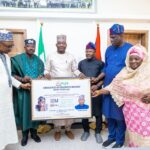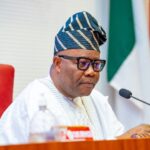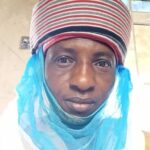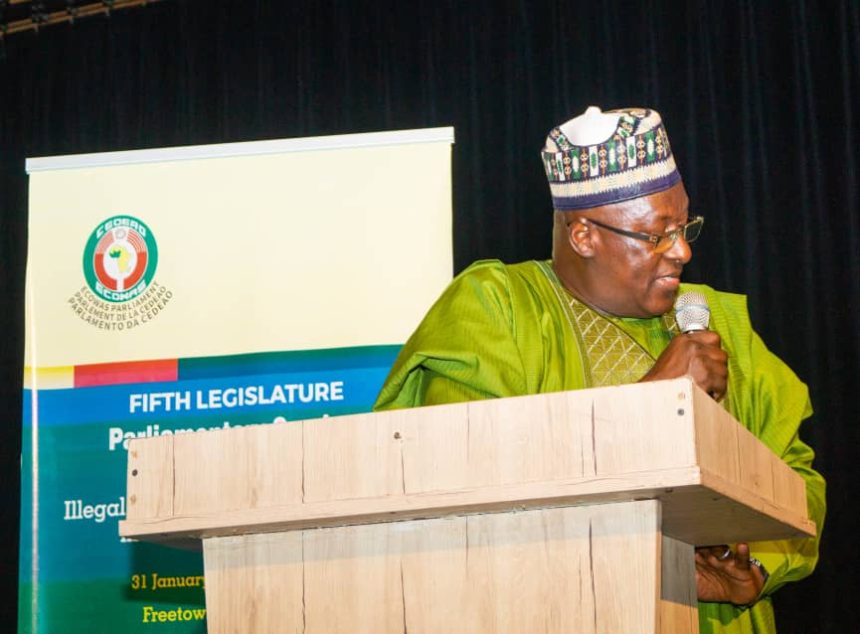Linus Aleke
The story of illegal mining in West Africa sub-region, cannot be told effectively without interrogating the negligence of national principalities, as well as the sub-regional economic bloc -ECOWAS, in putting in place effective legal instruments and security check, to checkmate the criminals, pillaging precious and priced minerals, deposited in the womb of the mother earth for the wellbeing, welfare and survival of citizens of the community.

The story will also be incomplete, without mentioning the devious and dubious role of some top state officials, in aiding and abetting this illicit enterprise and crime against the state and its population.
This is, of course, in addition to the security threats posed by illegal mining wherever it is taking place in the world. Security experts have continually linked insurgency, terrorism and other emerging security threats in West African sub-region to illegal mining.
Though, that may not be the only driver of terrorism and insurgency in the sub-region, national and sub regional authorities also point in the direction of illegal mining, amongst several other underlining factors.
It is therefore, on the premise of the above and the urgent need to find lasting solutions to this cancer that is struggling to rupture the artery of the sub-regional’s major sources of revenue and foreign exchange earnings that the community Parliament of the Economic Community of West African States (ECOWAS), organized its first Parliamentary Seminar in 2024, to find lasting solutions to the scourge of illegal mining in West Africa.
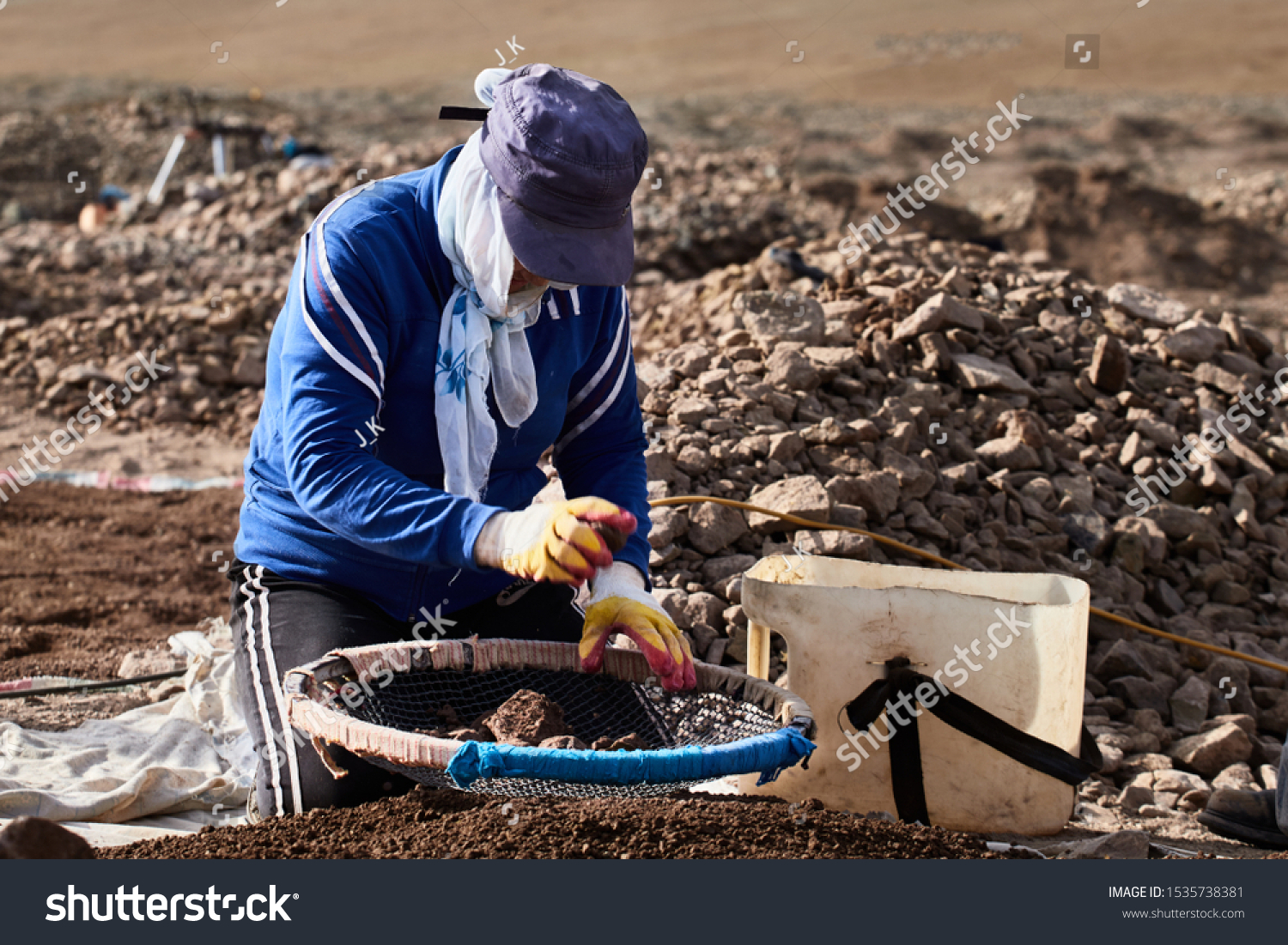
This is as a political science scholar, and Head, Department of Political Science, Benue State University, Makurdi, Dr. Atah Pine, said, ECOWAS has no role to play in curtailing the evil of illegal mining in West Africa.
Dr. Atah posited that, “ECOWAS has no role in illegal mining. It is part and parcel of the wider crisis and it should be treated as a national security problem”.
In his remark at the 2024 first Parliamentary Seminar, holding in Freetown, Sierra Leone, the Speaker of ECOWAS Parliament, Rt. Hon. Sidie Mohammed Tunis, noted that the threat of illegal mining in the ECOWAS region is having far-reaching implications on the security, socio-economic and environmental fabric of the region, hence the need for ECOWAS to step in to find a lasting solutions to the problem.
Rt. Hon. Tunis, argued that despite the potential of the mining sector to positively impact the lives of community citizens, the complex interplay of security, social-economic dividends, environmental impacts on the soil and waters, have emerged as pressing concerns that demand immediate investigation and finding sustainable solutions.
This is as President of the Republic of Sierra Leone, Dr. Julius Maada Bio, disagrees with Dr. Atah that ECOWAS has no role to play in tackling the scourge of illegal mining, arguing that
Illegal mining is a transnational issue that requires a coordinated regional response.
The President further argued: “we recognise that no single country can address this complex issue alone. We must work hand in hand with our regional partners, sharing best practices, intelligence, and resources to combat illegal mining across borders effectively. The ECOWAS Parliament plays a crucial role in facilitating such cooperation, and I urge all Member States to strengthen their commitment to collective action”.
Giving credence to President Maada Bio’s opinion on the subject under scrutiny, a security expert, Dr. Kabiru Adamu, said, the role of ECOWAS is significant in the sense that the trading of illicit mined materials of different types is usually cut across different countries.
According to him, “Where border management is improved, where intelligence sharing is also improved and where regulatory competences are enhanced across all the countries, it will go a long way towards reducing this organized crime and illicit trading in mined materials,.
On the issue of the link between terrorism and illegal mining, Dr. Adamu, said that there are several theories that abound but however, noted that the responsibility is on the government to take control of the sector.
“Starting with the issuance of licenses, ensuring that those licenses are issued to capable persons and after they have been issued, ensure that they have the go-ahead to start production in those areas and that there is adequate regulations to ensure that they pay all the royalties and dues to government. The current situation where licenses are issued and then the licenses are not utilized allows for artisanal and illegal mining. But like I said earlier, there is need for synergy between the federal and state governments. The state government are currently sabotaging the federal government, mainly because they are not comfortable with the situation where only the federal government issues the licenses and state has nothing to say, that needs to be reversed,” he further posited.
Dr. Adamu also counseled the government needs to enhance the capacity of the regulatory agency to enforce laws in the sector and have closer synergy of purpose between the state and federal governments.
The state governments, he argued, need to have a level of influence in the mining sector. In addition, he said, the security of MDAs should create special units dedicated to the mining sector that can work with the Ministry to enforce regulations.
On his part, the Speaker of ECOWAS Parliament, Dr. Sidie Mohammed Tunis, said: “As you already know, the seminar for which we have gathered is expected to consider a topic that has captured the attention of governments, organizations, and local communities, and that is illegal mining and its implications in the ECOWAS region. A careful revision of the numbers available to us provides a compelling need to give attention to the region’s mining sector. For instance, nearly 80% of mining in Northwest Nigeria is being carried out illegally, which has increased conflict since 2014, spreading across Kaduna, Katsina, Kebbi and Zamfara States. Referring to the contribution of the mining sector to the GDP of some Member States, the ECOWAS Vision 2050 document indicates that Ghana benefits 7.5%, Burkina Faso 10.2%, Cote d’Ivoire 4%, while Nigeria receives only 9%”.
The Speaker, argued that with a properly regulated mining sector in the region, it is expected that various economies in West Africa, would be far more impactful.
He further averred that “illegal mining of precious minerals in West Africa has succeeded in not only depriving Member States of much needed revenue to grow their economies through improved GDP, but has also created instances of instability through banditry, kidnapping, thuggery and in some cases insurgency.
Dr. Tunis posited that, to examine the phenomenon of illegal mining, as well as its socio-economic, security and environmental implications on the
advancement of Member States, the leadership of the Parliament found it
befitting to dedicate the last Parliamentary Seminar of the Fifth
Legislature to the topic.
“We expect that at the end of the seminar, we will have a greater appreciation of the regional mining frameworks and challenges to their implementation and make recommendations where regional collaboration can be fostered to boost the sector,” he concluded.
While declaring the Parliamentary Seminar open, the President of the Republic of Sierra Leone, Dr. Julius Maada Bio, observed that illegal mining and trafficking in precious minerals negatively impact peace, stability, security, development, governance, the rule of law, the environment and the economy.
Underscoring the importance of collective action in addressing challenges that transcend borders, President Maada Bio, said that West African sub-region has contended with illegal mining even before nations gained their independence.
He disclosed that African continent possesses over 60 different types of minerals, accounting for a third of the world’s mineral reserves.
The ECOWAS region, he said, is richly endowed with abundant reserves of a large variety of non-renewable natural resources comprising mineral resources, including gold, uranium, bauxite, iron ore, diamonds, phosphate and manganese, crude oil and natural gas.
He said, “These extractive resources account for a significant portion of Africa’s proven assets. Mining and other extractive industries have the potential to transform economies. The Extractives Industry sub-sector is the main source of Government revenues in many of our countries, and it accounts for more than half of all exports”.
Conceptualizing illegal mining, the President quoted United Nations Office on Drugs and Crime (UNODC), as saying, “the illegal mining of precious minerals is the prospecting and extraction of minerals with high economic value, undertaken without appropriate land rights, exploration and mining licenses or mineral transportation and other permits”.
Illegal mining of precious minerals, the UN agency added, is often accompanied by serious human rights abuses and can have severe environmental impacts, including deforestation, land degradation and pollution.
“Illegal mining and trafficking of precious minerals are often linked to economic crimes, such as tax evasion, fraud and corruption, by exploiting loopholes in regulatory frameworks. Due to the high profits associated with precious minerals and the often-low risks of being arrested or prosecuted, organised criminal groups are exploiting this sector,” the President said.
Proffering solutions the intractable problem of illegal mining, President Maada Bio, said, “As policymakers, we must make concerted efforts to strengthen further the legal and regulatory frameworks to curb illegal mining significantly. I express my appreciation to all participating nations and stakeholders for their commitment to finding sustainable solutions to combat illegal mining”.
On the potential of mining sector, Dr. Maada Bio said, “there is immense economic potential in our mineral resources if managed effectively. There are lucrative opportunities for the future development of new uranium deposits in Niger; iron ore in Guinea and Senegal; bauxite in Guinea; gold in Mali, Ghana and Burkina Faso; and even phosphate in Mauritania.These mineral resources contribute up to 5% of regional exports, making them the main or second source of foreign exchange earners for many West African countries. Togo, Ghana, Sierra Leone, Guinea, Mali, Mauritania and Niger are all examples of countries that depend heavily on mineral exports. But it must be said that all this wealth has not yet led to the economic emergence of the West African region for several reasons, the principal of which is illegal mining”.
He said that the losses to West Africa’s economies resulting from illegal mining amount to millions of dollars every year, adding that these losses are further compounded by the lack of agricultural land, pollution, environmental degradation, and the challenges posed by rising insecurity through banditry and insurgency, as well as the financing of terrorism.
He said the theme of the final seminar of the 5th Legislature, “Illegal mining and its consequences in the ECOWAS region”, is timely in recommending solutions to put an end to this scourge, which is seriously damaging countries at every level.
In Sierra Leone, he said: “we have witnessed firsthand the devastating effects of illegal mining. Our once pristine landscapes have been marred by unregulated mining activities, leading to deforestation, water pollution and loss of biodiversity. Moreover, illegal mining deprives our Government of much-needed revenue and aggravates social tensions within our communities. However, we are not alone in facing this challenge. Illegal mining is a transnational issue that requires a coordinated regional response. That is why forums like this are crucial for fostering collaboration and sharing best practices among ECOWAS Member States”.
He said that in Sierra Leone, they are taking decisive actions to tackle illegal mining head-on, noting that they are intensifying efforts to streamline the licensing process, enhance monitoring mechanisms, and clamp down on illegal mining operations.
Additionally, he said that his administration is investing in education and skills development programs to provide viable alternatives to those involved in illegal mining.
He further proffered the foregoing solutions, “We must strengthen our legal frameworks, enhance cross-border cooperation, and invest in sustainable mining practices that benefit our economies and the environment”.
The President stressed that the government must address the root causes that drive individuals into illegal mining, such as poverty, lack of alternative livelihoods, and weak governance.
He noted that by promoting inclusive growth and empowering local communities, the authorities can create opportunities for economic development while safeguarding natural resources for future generations.
He concluded by expressing optimism that, from the presentations and fruitful debates of the seminar, recommendations will emerge that will accelerate the implementation of regional policy frameworks to eradicate illegal mining in West Africa and strengthen areas of regional collaboration for a viable mining sector.
Also, International Affairs Analyst, who did not want his name in print said that ECOWAS Institutions are notorious for talks without commensurate actions.
He noted that ECOWAS Parliament is not an exception, stressing that Parliamentary Seminar, Ordinary or Extra-Ordinary sessions, or even delocalized meetings, are all about institutional rituals that have no impact on the community members.
According to him, “If you ask the leadership of ECOWAS Parliament to mention one of its profound achievements in the past four years that impacted the lives of community members, they will think from now to eternity without mentioning one. Unless, they would want to mention some unverifiable stuff as usual. Under their watch ECOWAS is losing weight. Just last week, Mali, Burkina Faso, and Niger, left the economic grouping. This move reduced its numbers from 15 to 12. Is that also an achievement?”.
The talk shop under the guise of Parliamentary Seminar, he concluded, will yield no single benefits to citizens of the community.


